La Iniciativa de Acceso se enorgullece de anunciar una búsqueda de Campeones de Escazú.
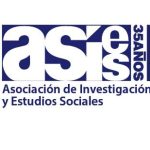
Asociacion de Investigacion y Estudios Sociales
Asociación de Investigación y Estudios Sociales (ASIES) carries out analysis, research and advocacy to promote public participation and social integration in order to ensure respect for human rights in Guatemala. Their principal research areas are law, economy, education, labor, politics and public opinion. As an organization that is not affiliated with any political party or ideology, ASIES promotes a democratic framework built on justice, liberty, peace and solidarity.
- Address
-
Guatemala
- cvega@asies.org.gt

Banco de los Trabajadores
Banco de los Trabajadores (BANTRAB) is a private commercial bank and one of the five largest financial groups in Guatemala. The Bank offers easy and quick access to financial services to both the public and private sector. BANTRAB provides their customers with advice and personalized support. Each division seeks to satisfy the needs of customers quickly, easily, and best suited to their customers financial needs. BANTRAB supports well-targeted actions as part of their Corporate Social Responsibility, which is divided into four areas: Social Work, Education, Athletics, and Public Policy.
- Address
-
Guatemala
- emetelgua@hotmail.com
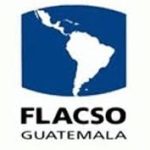
Facultad Latinoamericana de Ciencias Sociales
Facultad Latinoamericana de Ciencias Sociales (Latin American Faculty of Social Sciences- FLACSO) is an international organization dedicated to research, teaching, and the dissemination of social science. FLACSO's Guatemala headquarters promote social research and better understanding and interpretation of the social sciences in the country. The Faculty has focused its efforts towards a number of issues including the peace process, military conversion, democratization, gender studies and youth, local power, natural resources, sustainable development, education, poverty, and social movements. FLACSO is a founding member of the collective Mirador Electoral Observation, a body that promotes the democratic development of electoral events through citizen participation.
- Address
-
Guatemala
- cydonis@flacso.edu.gt

Fundacion KUKULKAN
Fundación KUKULKAN is a private, non-profit organization which works to promote community involvement in efforts to establish a more harmonious coexistence between humans and nature. The Foundation's work is aimed at the most vulnerable social groups, in both urban and rural areas, specifically women, children, and the elderly.
- Address
-
Guatemala
- jcabrera@citel.com.gt
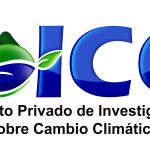
Instituto Privado de Investigacion sobre Cambio Climatico
Instituto Privado de Investigación sobre Cambio Climático (ICC) is an institution founded to face current and future challenges posed by climate change. ICC aims to develop research and promote actions contributing to the reduction of vulnerability, mitigation and adaptation to climate change in communities, production processes and infrastructure in the region. The Institute has five programs of work: climate and hydrology research; sustainability of production systems; integrated watershed management; disaster risk management; and capacity building and communication. Some of ICC's recent activities include training on climate change and the environment and a symposium on the water resources of Escuintla.
- Address
-
Guatemala
- aguerra@icc.org.gt
- Phone
- +50278281037
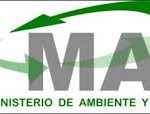
Ministerio de Ambiente y Recursos Naturales
Ministerio de ambiente y recursos naturales (MARN) is a public body responsible for formulating and implementing policies relating to the environment. MARN's function is to design, establish, implement and monitor national and sectoral environmental policies. MARN observes and enforces the rules concerning conservation compliance, protecting and improving the environment, sustainability and natural resources in the country, and the human right to a healthy and ecologically balanced environment. The Ministry aims to ensure strict compliance with laws, administrative integrity, and proper investment of public funds.
- Address
-
Guatemala
- jdalvarez@marn.gob.gt
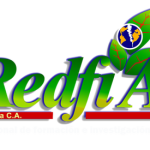
Red Nacional de Formacion e Investigacion Ambiental
The Red Nacional de Formación e Investigación Ambiental (REDFIA) seeks to strengthen the coordination between university research centers and the government authorities responsible for environmental management in order to further social and environmental research. REDFIA's nine members work together to promote environmental research in Guatemala and advocate for the creation and implementation of environmental public policies. REDFIA is also an active member of the Central American and Caribbean Alliance for Principle 10.
- Address
-
Guatemala
- Gira2311@gmail.com
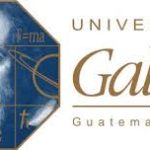
Universidad Galileo
Universidad Galileo is a private university which considers itself to be an institute of professionals with academic excellence worldwide, high spirit of justice, and ethical values. The University has seven vocational schools, seven faculties, and five institutes. The University seeks to change visions and transform lives.
- Address
-
Guatemala
- amarovictoria@gmail.com
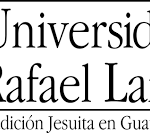
Universidad Rafael Landivar
Universidad Rafael Landívar (URL) is a private, Catholic University which offers 51 degree programs to its 11,000 students. The University, in its search for truth through research, teaching and outreach, undertakes to contribute to comprehensive and sustainable development, transforming the individual and society to become more humane, just, and inclusive.
- Address
-
Guatemala
- aomonterroso@url.edu.gt

Universidad Rural de Guatemala
Universidad Rural de Guatemala (Urural) is a private university which works towards the conservation of natural resources, without neglecting the dynamic development that is necessary for communities. The University offers degrees which students can apply to careers involved in enhancing the environment and natural resources, including agroecology, environmental engineering, environmental law, and management of renewable natural resources, Urural promotes social intermediation to meet its overall purpose, which is to empower the rural and sustainable development of the country.
- Address
-
Guatemala
- csalazar23953@hotmail.com
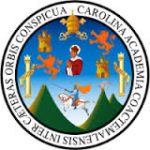
Universidad de San Carlos De Guatemala
Universidad de San Carlos De Guatemala (USAC) is the largest and oldest university in Guatemala at 339 years old. USAC is a public university with eight schools, 11 faculties, 18 campuses, three institutes, a postgraduate system and over 200,000 students. The University shares its research in different fields and cooperates in studies and finding solutions for national problems and works to transform the society by educational media. USAC is committed to scientific, social, humanitarian, and environmental development. It works with an updated, dynamic, effective approach and to achieve its goals and objectives, forming professionals with ethical principles and academic excellence.
- Address
-
Guatemala
- lciyon@gmail.com
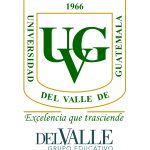
Universidad del Valle de Guatemala
"Universidad del Valle de Guatemala (UVG) is a private, not-for-profit University which considers itself to be a pioneer in the fields of science, humanities, teaching, research and technology. In an effort to support its mission and goals, Universidad del Valle de Guatemala has the most active research institute in the country. The Research Institute is composed of ten research centers focused on Education, Environment and Biodiversity, Agriculture, Biochemistry, Biotechnology, Computer Sciences, Industrial Processes, Archaeology and Anthropology, Food Science and Technology, and Health Studies. The Center for Environmental Studies and Biodiversity center aims to find solutions for the environmental and development problems of Guatemala using a holistic and interdisciplinary approach. They focus on the study of ecological dynamics in different biomes of Guatemala combining both social and natural sciences to fully understand the environmental problems and their human dimension to provide viable solutions for the proper management and use of their natural resources. Every year, hundreds of students use the Research Institute laboratories as part of their courses, and dozens work directly in the Institute's research projects. The Research Institute employs highly qualified professionals, including forty permanent researchers and over one hundred researchers employed through projects. The staff includes five winners of the National Medal for Science and Technology. The Institute's researchers work on an average of eighty research projects per year, obtaining over seven million dollars per year in external funding. This represents over 50% of the reported Science and Technology expenditure for Guatemala in 2012."
- Address
-
18 Av. 11-95 zona 15Vista Hermosa IIIGuatemalaGuatemalaGuatemala 01015
- ecastell@uvg.edu.gt
- Phone
- 502 2368 8353